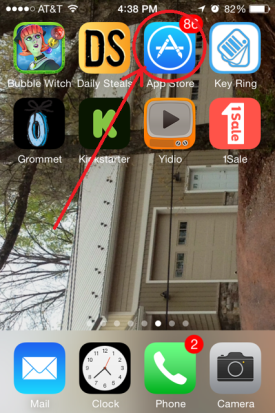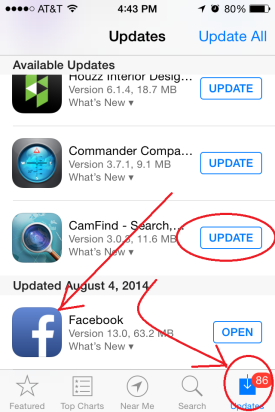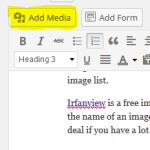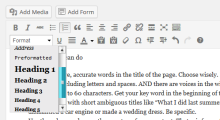How hard is it to understand that everyone who reads your newsletter
.. in print or on line..
does NOT know your address?
![]()
This is a rant based on three invitations of sorts, two in print and one on line. None of these inviations included important information about where to go!
Oh, I’d like to tell somebody where to go, but that’s a different story.
First:
Earlier this month we received the Harrisburg Magazine’s annual “Best Of” issue—including all the places that residents voted as the best places to do or get something.
And not a one of those beautiful full page promotions gave an address or a phone number. I wrote to the publisher to ask if that information was somehow classified for only “real residents,” to keep it all secret from the new comers? No reply. Sheesh.
Second:
Then there was the printed quarterly newsletter of the township where we live. We don’t live in the actual town, we live in the woods NEAR the town. But the town is the closest place with a post office and a pizza place.
They’re having a Halloween tour at their historical society. But no address. And heck, because we’re new and don’t live in the actual town, the picture of the building just wasn’t enough. A link to their website would have helped a lot!
Third:
An on line newsletter for the Hershey Region of the Antique Automobile Club of America (which is a very big deal event in old car circles around here in Pennsylvania. Quoted from the top of the email:
If you’ve never been to the Hershey Fall Meet, make this year your first. You will be amazed by the size of the show, the cars you see, the people you meet and the memories you make!
Buried about half way down this VERY long publication with info about voting and parties, I believe I found the dates, the actual address is a big sketchier.
![]()
There’s nothing worse than planning a big event and nobody shows up, simply because they didn’t know where to go!
Remember the simple Who, What, Where and When questions that belong at the top of what ever you write.
- Who is sponsoring this event?
- What is it? Tour, garage sale, fund raiser, church service, big party?
- Where will it be? That’s an address, people!
- When? Date and time
- And perhaps most important for events you want people to PAY to attend, include the FREAKIN’ PRICE!
When you’ve included all that information at the top of your article or invitation, then writing the call to action is pretty easy.
 Call to action:
Call to action:
Remember: People tend to do what you tell them, and do it without thinking.
So say: Call, visit, email… whatever you want them to DO!
Don’t say, please consider… blah blah blah.
You want me to consider something? I’ll do it later, maybe in the tub or while I’m driving someplace and can’t actually DO anything you asked.
Include a contact phone number, email address, or web address for more information
Get the most from your members’ address books, email or otherwise, supply them with the specifics above.
Write the copy for them.
Supply the pictures.
Make it a copy-and-paste job so it’s easy to share the important details.
The people who get the info will be able to decide what you want them to do! And then maybe actually DO IT!
What do you think is missing from invitations you’re seeing these days? Give me something else to get ramped up about!

 I have been noticing a LOT of people named “admin” have been locked out of a few of my client websites.
I have been noticing a LOT of people named “admin” have been locked out of a few of my client websites.
 Then scroll down til you find an app you want to update.
Then scroll down til you find an app you want to update. But it’s not that odd of a process.
But it’s not that odd of a process. It can be a bit scary because it can feel like everybody but you understands how computers and the internet work. Heck, 4-year-olds play computer games. So how hard can it be?
It can be a bit scary because it can feel like everybody but you understands how computers and the internet work. Heck, 4-year-olds play computer games. So how hard can it be?

 It makes me feel safe and warm and cared-for. And I hope the warm fuzzies transfer to new people who might be thinking about working with me.
It makes me feel safe and warm and cared-for. And I hope the warm fuzzies transfer to new people who might be thinking about working with me.



 But here’s the question: Why?
But here’s the question: Why?